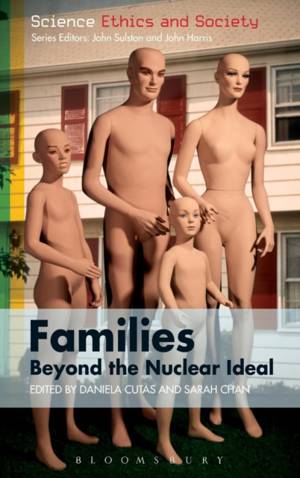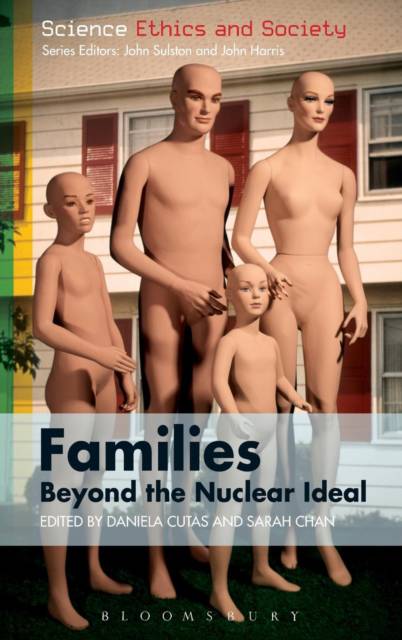
Vous voulez être sûr que vos cadeaux seront sous le sapin de Noël à temps? Nos magasins vous accueillent à bras ouverts. La plupart de nos magasins sont ouverts également les dimanches, vous pouvez vérifier les heures d'ouvertures sur notre site.
- Retrait gratuit dans votre magasin Club
- 7.000.000 titres dans notre catalogue
- Payer en toute sécurité
- Toujours un magasin près de chez vous
Vous voulez être sûr que vos cadeaux seront sous le sapin de Noël à temps? Nos magasins vous accueillent à bras ouverts. La plupart de nos magasins sont ouverts également les dimanches, vous pouvez vérifier les heures d'ouvertures sur notre site.
- Retrait gratuit dans votre magasin Club
- 7.000.0000 titres dans notre catalogue
- Payer en toute sécurité
- Toujours un magasin près de chez vous
Families - Beyond the Nuclear Ideal
296,95 €
+ 593 points
Description
This book examines, through a multi-disciplinary lens, the possibilities offered by relationships and family forms that challenge the nuclear family ideal, and some of the arguments that recommend or disqualify these as legitimate units in our societies.
That children should be conceived naturally, born to and raised by their two young, heterosexual, married to each other, genetic parents; that this relationship between parents is also the ideal relationship between romantic or sexual partners; and that romance and sexual intimacy ought to be at the core of our closest personal relationships - all these elements converge towards the ideal of the nuclear family. The authors consider a range of relationship and family structures that depart from this ideal: polyamory and polygamy, single and polyparenting, parenting by gay and lesbian couples, as well as families created through current and prospective modes of assisted human reproduction such as surrogate motherhood, donor insemination, and reproductive cloning.Spécifications
Parties prenantes
- Editeur:
Contenu
- Nombre de pages :
- 240
- Langue:
- Anglais
- Collection :
Caractéristiques
- EAN:
- 9781780930107
- Date de parution :
- 17-01-13
- Format:
- Livre relié
- Format numérique:
- Genaaid
- Dimensions :
- 160 mm x 234 mm
- Poids :
- 498 g






